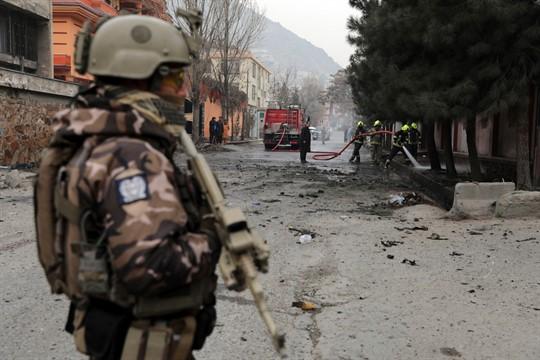Afghanistan’s president, Ashraf Ghani, stands between the proverbial rock and a hard place. Faced with the fact that the United States has lost patience with the Afghan government’s dithering negotiations with the Taliban, Ghani now has little choice but to orchestrate a deal that will likely end his presidency—and almost certainly result in a destructive civil war. Whether Washington decides to honor a bargain struck with the Taliban under the Trump administration, which calls for the exit of 2,500 American troops by May 1, or whether the Biden administration extends their mission by another 90 or 180 days, is almost immaterial. What waits on the other side of a final U.S. drawdown is a pitched battle for control of Kabul and Afghanistan’s other major population centers. Everyone needs to prepare for that inevitability now.
Secretary of State Antony Blinken, in fact, seemed to signal in a letter to Ghani leaked early this week that the U.S. is gearing up to do just that. The tone of Blinken’s bluntly worded missive suggests that the Biden administration understands that its efforts to reenergize talks between the Taliban and Kabul are unlikely to produce a long hoped for political settlement without U.N. mediation and cooperation from regional stakeholders. As it is, neither Ghani nor the Taliban have signaled much appetite for the White House’s new proposal to form an interim government with representatives from all sides in Afghanistan. Moreover, the chilly silence that greeted U.S. special envoy Zalmay Khalilzad’s push late last year for the Taliban and Ghani’s government to meet in Turkey to hash out the terms of a cease-fire and power-sharing deal is a pretty good indicator that any bargain struck there to reduce hostilities won’t hold for very long.
 Eurasia Press & News
Eurasia Press & News




